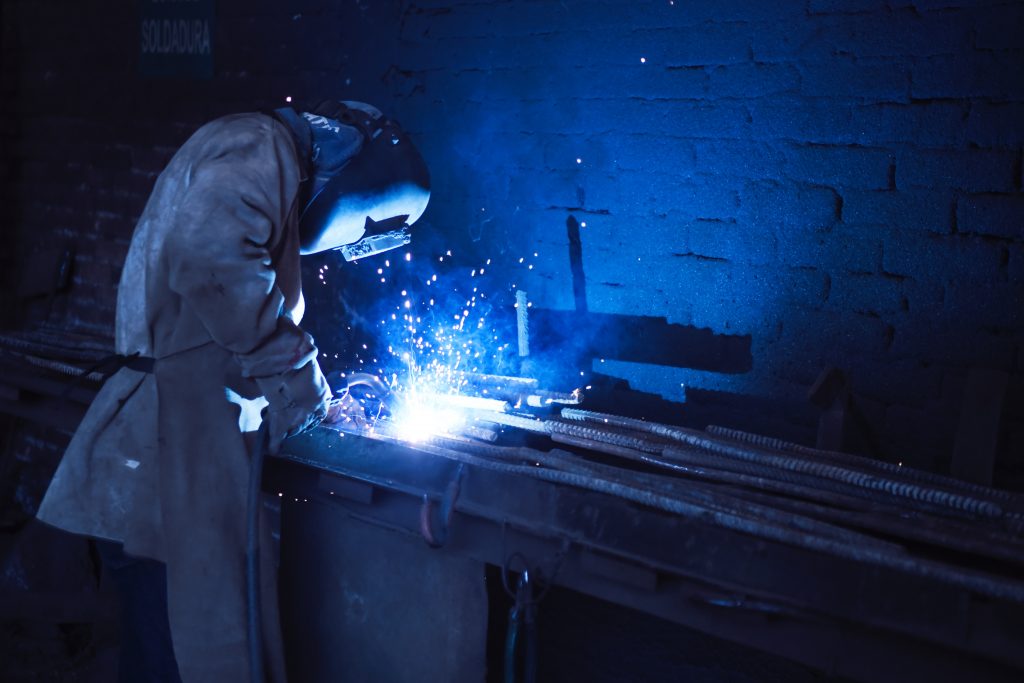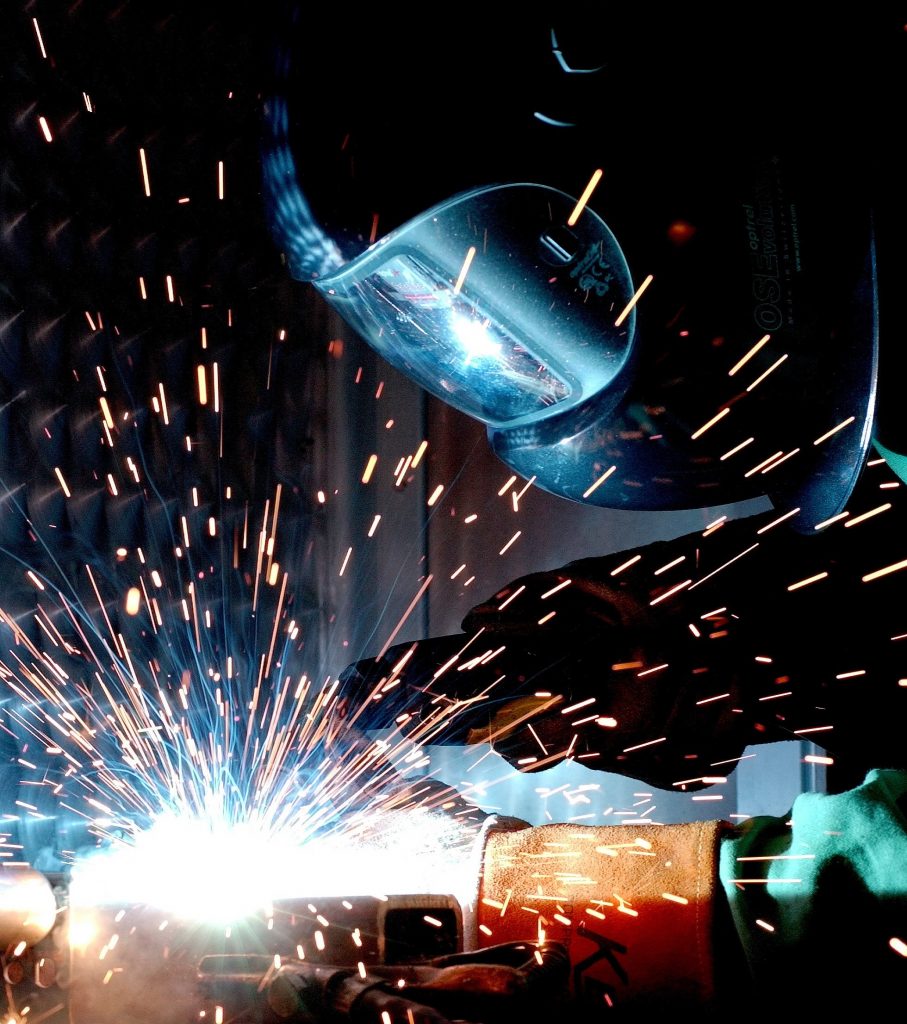In this article, we will talk about the job of a welder.
We will explore the duties and qualifications as well as skills, job prospects, and more.
The job of a welder includes assembling and fabricating structures made of metal.
They use various equipment such as welders, cutters, shapers, and other measuring tools.
They are responsible for manufacturing products according to the specifications and standards of employers or customers.
Article Table of Contents
What Does a Welder Do
Welders should provide the foundation for strong infrastructure.
They use various equipment to join mechanical parts or structures with precision.
Their manufacturing includes architectural designs, repairs, and fixtures among other things.
Besides using a variety of welding techniques, they have to lift and carry heavy items.
They usually work under harsh conditions that include intense noise, air contamination, dirty environment, and restricted areas.
The average rate of welders is $18 per hour.
Responsibilities
- Joining, designing, fabricating, and repairing structures, equipment, and other metal objects using welding techniques such as MIG or TIG welding, oxygen-acetylene, electric arc, etc.
- Analyzing plans, drawing, and blueprints to determine plan layout, measurements, and sequence of welding assignments.
- Depending on the job requirements, determining the equipment and welding methods for the job.
- Recommending materials and supplies, estimating costs for labor and materials.
- Operating grinders, power saws, drill presses, and other tools.
- Testing and inspecting welded structures to discover flaws.
- Responsibly using and maintaining equipment not to compromise safety.
Essential Skills
Reading comprehension:
Welders should read and understand the codes and specifications of the projects as well as company policies and procedures.
They should also comprehend safety manuals and operating procedures.
Document use:
Various documents are an essential part of any welding project, so welders should examine project documentation and determine the lines and pipes in the workplace as well as their contents.
They should also interpret blueprints and diagrams to identify engineering requirements.
Materials knowledge:
Welders should be perfectly knowledgeable about the equipment and materials and demonstrate proof of experience using them.
Numeracy:
Welders use a lot of numbers in estimating weights and costs, measuring, checking bills, and solving spatial problems.
Writing:
Welders need writing skills to prepare the reports for employees and material use, incident reports, complete daily logs, and outline safety guidelines.
Communication:
Welders should have excellent communication skills.
They should be able to explain welding designs and discuss assignments with customers.
Additionally, they should give directions to those who deliver or pick up materials as well as compare measurements with partners when calculating a structure or building.
Teamwork and collaboration:
Welders should be able to work in a team as well as independently.
They should also orient new employees, inform and demonstrate the performance of a task to other workers.
Besides, they have to participate in formal discussions of work processes to determine room for improvement.
How to Become a Welder
The educational requirements for welders include a high school diploma or equivalent and some vocational or technical education, see welding schools by state here.
Additionally to formal training, they can take courses in mechanical drawing, blueprint reading, shop mathematics, etc.
Many employers hire inexperienced employees and provide them with on-the-job training.
However, the workers who have been through training and credentialing programs are still in higher demand.
Read the full guide:
How to Become a Certified Welder: The Ultimate Guide & Step-by-Step Instructions
Training and Qualifications
There are various certification welders can obtain depending on the type of welding work they wish to do.
They can get certifications through the American Welding Society (AWS), American Society of Mechanical Engineers (ASME), or American Petroleum Institute (API), which offer various pathways toward specific jobs.
Some areas require welders to have a license and certification, for instance, in New York or Los Angeles.
Those who wish to work on a federal or state project should check with the employers for particular licensing or certification requirements.
Taking certain courses in high school can be useful for technical training.
Such courses include metallurgy or chemistry.
The ideal education for welders includes technical or vocational schools offering hands-on experience.
Welders should stay updated on procedures and training.
It is easy to do by retaking practical tests from time to time.
They can also complete company-specific training or attending informational sessions to learn about new methods or products.
They could also educate themselves.
Experience
Welding is more complex than many people think.
Because of this, it can be very difficult without any experience or background.
Even experienced welders that are newly hired will undergo a few months of on-the-job training.
One of the best ways to gain experience and expertise is through internships, training, and vocational schools.
Some high school courses can also be useful.
Welders are in demand in all types of industries.
That’s why many employers offer in-depth on-the-job training to welders with little experience.
However, workers with certifications are preferred.
Working Hours
Welders work similar hours to workers in other trades.
Often, the schedule features early mornings and late nights for the projects that are on the budget and deadline.
Welding can be a demanding profession.
Depending on the project, the workweek can last up to 70 hours.
The hours are usually quite regular with common overtime.
Career Outlook
According to the BLS, the employment of welders will grow by 4% by 2024.
This percentage is below average since welders can easily change the industry.
The skills required for welders are similar in different fields.
The job outlook for welders who are familiar with the latest technologies is great.
However, those who aren’t aware of them may end up in a competitive environment.
The average salary for welders is reported to be $39,000.
Conclusion
The career of a welder is highly demanding.
Welders should be good with numbers and understand codes and documents.
Employers, however, are still willing to hire welders with limited experience and train them.
While the hours can be long, the compensation for hard work is decent.

